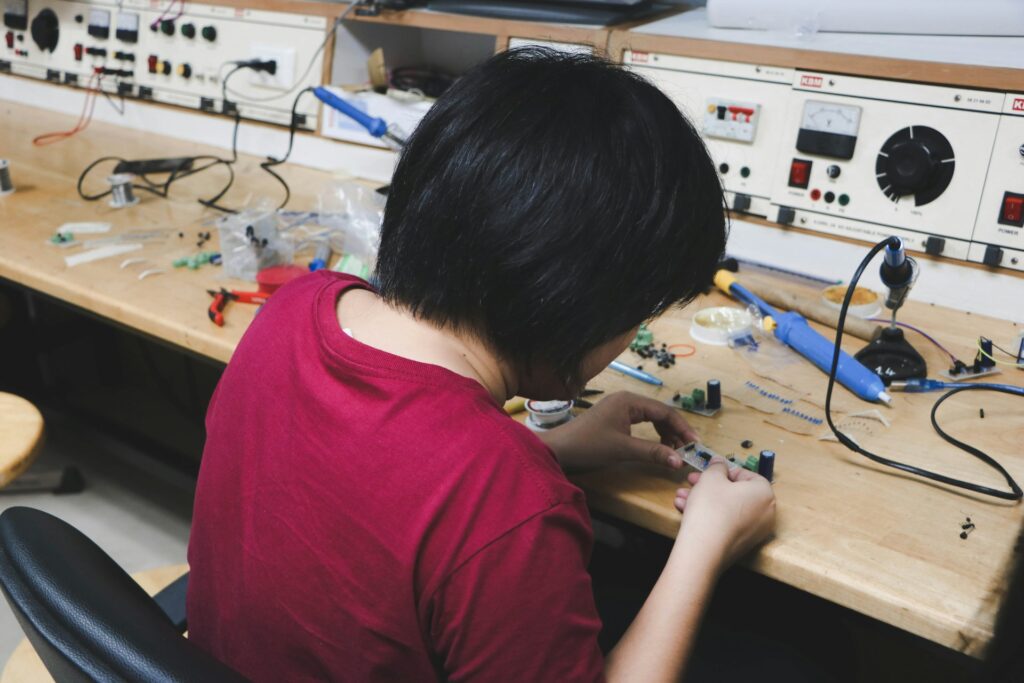Intelligence in children is often recognized through more than just academic performance. While traditional measures like grades and standardized tests can provide insight, they do not always capture the full scope of a child’s cognitive abilities. Remarkably intelligent children frequently demonstrate unique patterns of behavior, thinking, and emotional awareness that set them apart from their peers. Understanding these traits can help parents, teachers, and caregivers support their development in meaningful ways. Here are five traits commonly observed in children with exceptional intelligence.
Exceptional Curiosity

One of the most noticeable traits in highly intelligent children is a profound curiosity about the world around them. These children ask questions that go beyond surface-level understanding, seeking explanations for concepts and phenomena that others might take for granted. They often challenge assumptions and demonstrate a desire to understand the underlying reasons behind everyday occurrences. This curiosity is not limited to one subject, as they may exhibit interest in a wide range of topics, from science and mathematics to art, history, and literature. Encouraging this curiosity through exploration, open-ended questions, and access to diverse learning resources can help these children expand their knowledge and develop critical thinking skills.
Advanced Problem-Solving Skills

Children with remarkable intelligence often show an exceptional ability to analyze problems and devise creative solutions. Unlike their peers, they are able to see connections between seemingly unrelated concepts and apply logic in innovative ways. These children may approach challenges with a persistence that reflects both their intellectual capabilities and their drive to understand complex issues. They often enjoy puzzles, strategy games, and activities that require deep thought and planning. Supporting problem-solving skills involves providing opportunities for hands-on learning, engaging in discussions that promote reasoning, and offering challenges that stimulate intellectual growth without causing frustration.
Strong Memory and Retention

A highly developed memory is another common trait in exceptionally intelligent children. These children can recall facts, details, and experiences with impressive accuracy and may exhibit an early ability to memorize and apply information effectively. Their memory is not only useful for academic learning, but also for understanding patterns, recognizing cause-and-effect relationships, and drawing upon past experiences to inform decision-making. Teachers and caregivers can support memory development by encouraging the organization of information, teaching mnemonic strategies, and fostering environments that provide frequent opportunities for review and application of learned material. Strong memory skills often lead to accelerated learning and a deeper comprehension of complex subjects.
Heightened Emotional Awareness

Remarkably intelligent children often display advanced emotional awareness and empathy, which allows them to understand and respond to the feelings of others in nuanced ways. They may be highly sensitive to social dynamics and able to recognize subtle cues in behavior, tone, and expression. This emotional intelligence contributes to strong interpersonal skills, as these children can often anticipate the needs and reactions of peers and adults. It is important to note that heightened emotional awareness can also make these children more susceptible to stress or anxiety, as they may feel emotions more intensely. Supporting emotional development involves fostering a safe and understanding environment, teaching coping strategies, and encouraging open conversations about feelings and social interactions.
Intense Focus and Persistence

Children with remarkable intelligence often demonstrate the ability to concentrate deeply on tasks that interest them, sometimes to the exclusion of everything else. This intense focus, combined with persistence, allows them to pursue mastery in areas they are passionate about. Unlike mere attention span, this trait reflects a genuine drive to understand and excel. These children may become absorbed in projects, experiments, or creative endeavors for extended periods, showing determination and resilience in the face of challenges. Nurturing this trait requires providing opportunities for deep learning, recognizing achievements, and balancing focused activities with periods of rest and play to prevent burnout.
Supporting Remarkable Intelligence

Identifying these traits is only the first step in supporting a highly intelligent child. Providing an environment that challenges and stimulates intellectual and emotional growth is essential. Parents and educators should aim to offer a balance of structure and freedom, allowing children to explore interests while also guiding them in developing discipline and organization. Exposure to diverse experiences, including extracurricular activities, cultural events, and collaborative projects, can further enhance cognitive and social development. Additionally, recognizing the unique emotional needs of these children, including their sensitivity and intensity, is critical in helping them navigate social and academic environments successfully.
Avoiding Misunderstanding and Underestimation

Remarkably intelligent children are sometimes misunderstood because their abilities may manifest differently than expected. For example, a child with high cognitive skills might not always excel in traditional classroom settings, or they may challenge authority and conventional methods of learning. It is important to avoid underestimating their potential based on superficial indicators such as grades or behavior alone. Instead, observing patterns of curiosity, problem-solving, memory, emotional awareness, and focus can provide a more accurate understanding of their capabilities. Early recognition and appropriate support can prevent frustration, boredom, or disengagement, which can impede the development of these children’s full potential.
Encouraging Lifelong Learning

One of the most powerful gifts for children with exceptional intelligence is the encouragement of lifelong learning. By fostering a love for discovery, critical thinking, and problem-solving, caregivers and educators can help children develop skills that extend far beyond academic achievement. Encouraging independent projects, mentoring, and exposure to complex ideas allows these children to thrive intellectually and emotionally. Moreover, nurturing traits such as curiosity, focus, and empathy prepares them for meaningful contributions in personal, professional, and societal contexts. Recognizing and supporting the unique characteristics of intelligent children is essential for helping them reach their full potential and make positive impacts on the world around them.
The Bottom Line

Remarkable intelligence in children is multifaceted and extends beyond academic performance. Traits such as exceptional curiosity, advanced problem-solving skills, strong memory, heightened emotional awareness, and intense focus are commonly observed in highly intelligent children. Recognizing these traits allows parents, educators, and caregivers to provide the support and opportunities necessary for these children to thrive. By fostering intellectual curiosity, emotional resilience, and a passion for learning, we can help these children reach their full potential and prepare them for a lifetime of achievement and fulfillment. Understanding these characteristics is the key to nurturing exceptional minds in ways that are both effective and compassionate.
Read More: 7 Annoying Teen Habits That Actually Show Healthy Mental Development
Disclaimer: This article was created with AI assistance and edited by a human for accuracy and clarity.

